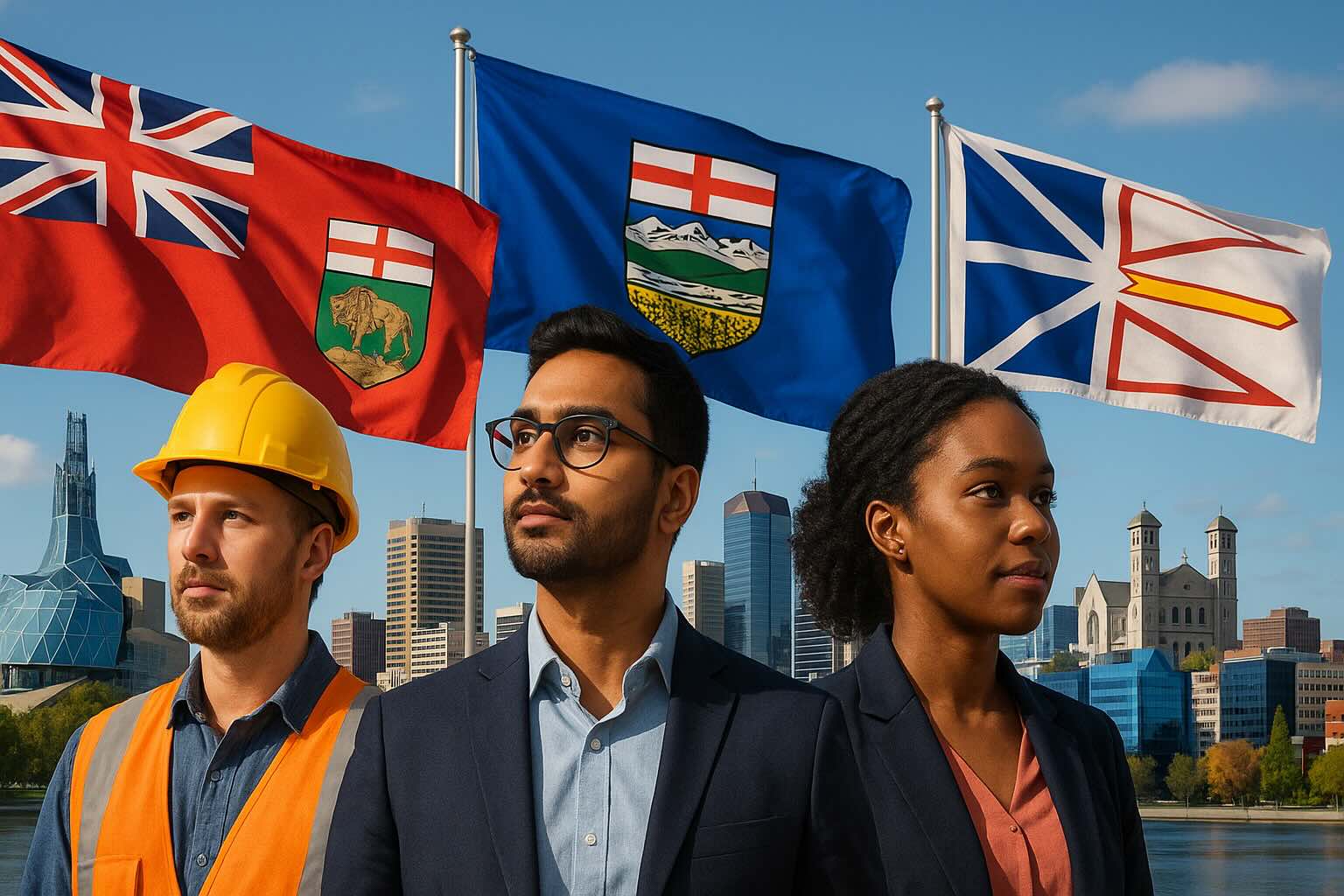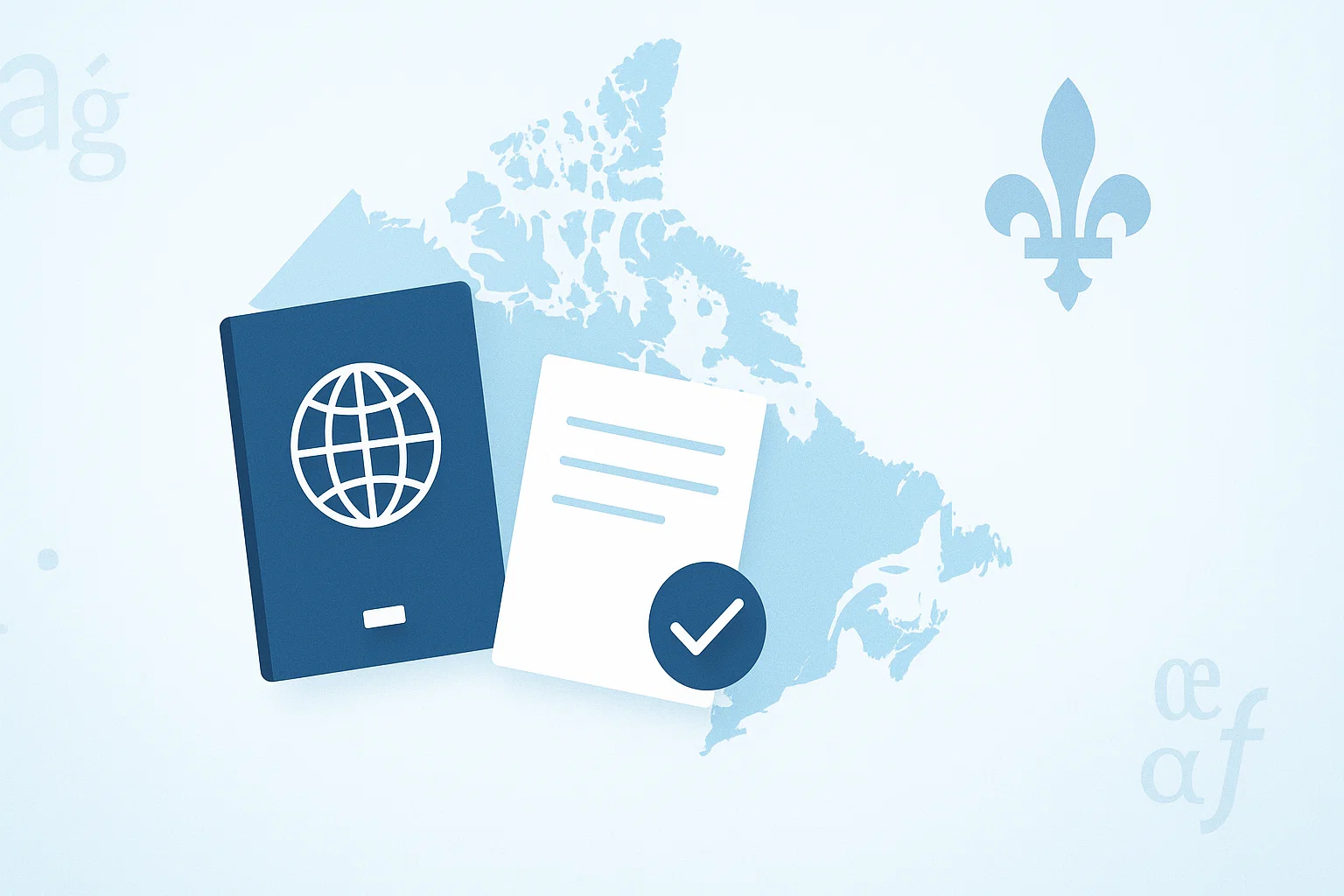
Recent activity within Canada's Provincial Nominee Programs (PNPs) shows that targeted invitations have become a primary tool for provinces to address labour shortages and achieve population growth goals. Manitoba, Alberta, and Newfoundland and Labrador have all recently announced details of their latest draws, each with distinct strategies and priorities that collectively point toward a clear trend of precision in talent acquisition.
Manitoba: High-Scoring, Precision Invitations Under Strategic Recruitment
The Manitoba Provincial Nominee Program (MPNP) conducted a special Expression of Interest draw on August 7, 2025. Unlike its regular, broad-based draws, this round exclusively targeted candidates who were directly invited through a "Strategic Recruitment Initiative."
In this highly selective draw, a total of 37 Letters of Advice to Apply (LAAs) were issued, requiring a high minimum ranking score of 724. The invitations were meticulously allocated to four specific categories:
- Francophone Community: 19 invitations, representing the largest group and underscoring the province's commitment to attracting French-speaking talent.
- Employer Services: 15 invitations, issued to candidates with direct support from local employers.Ethnocultural Communities: 2 invitations, aimed at supporting the growth of specific cultural communities.
- Regional Communities: 1 invitation, focused on driving economic development in the province's regional areas.
Of the total invitations, 7 were issued to candidates who also had a valid Express Entry profile and job seeker validation code, potentially fast-tracking their immigration process at the federal level. The exceptionally high score requirement and targeted allocation clearly indicate that Manitoba is leveraging strategic partnerships to hand-pick the specific talent it urgently needs.
Alberta: Focusing on Core Industries with Low-Score Draws
In July 2025, Alberta held two targeted draws through its Alberta Advantage Immigration Program (AAIP), inviting a total of 61 candidates to apply for provincial nomination. Both draws were linked to the federal Express Entry system but featured significantly lower score requirements than typical federal draws.
On July 25, a draw focused on the Priority Sectors (Construction) stream invited 39 candidates with a minimum Comprehensive Ranking System (CRS) score of just 66. Earlier, on July 17, the province issued 22 invitations through its Accelerated Tech Pathway, with a minimum score of 69.
These draws clearly reflect Alberta’s efforts to resolve labour shortages in key economic sectors. By setting highly competitive low-score thresholds, the province is actively attracting professionals with experience in construction and technology to support its ongoing economic growth.
Newfoundland and Labrador: Large-Scale Draws Through Dual Programs
Representing the Atlantic region, Newfoundland and Labrador has recently demonstrated strong momentum in attracting newcomers. Between late July and mid-August, the province issued a combined total of 381 Invitations to Apply (ITAs) through its two primary immigration pathways: the Newfoundland and Labrador Provincial Nominee Program (NLPNP) and the Atlantic Immigration Program (AIP).
Specifically, a draw on July 29 issued 150 ITAs (100 from NLPNP, 50 from AIP). This was followed by a larger draw on August 13, which saw 231 ITAs issued (180 from NLPNP, 51 from AIP).
The NLPNP primarily targets individuals with skills and experience in occupations in demand within the province, while the AIP is a broader regional program aimed at fostering economic growth across all four Atlantic provinces. Through frequent, large-scale invitations, Newfoundland and Labrador is not only actively addressing its local labour market challenges but also demonstrating a strong commitment to achieving its long-term demographic and economic goals through immigration.
In summary, Canadian provinces are increasingly tailoring their immigration strategies to their unique economic structures and development needs. For prospective applicants, understanding and aligning with the specific requirements of a target province will be crucial for successfully receiving an invitation to apply in the future.









